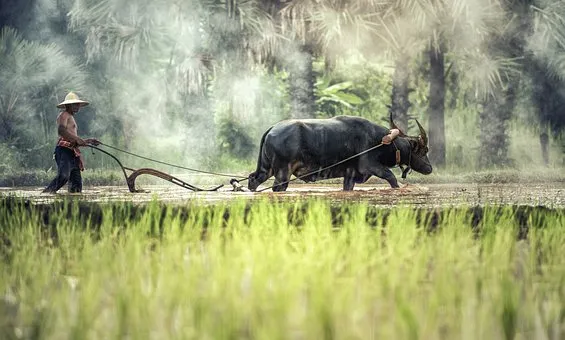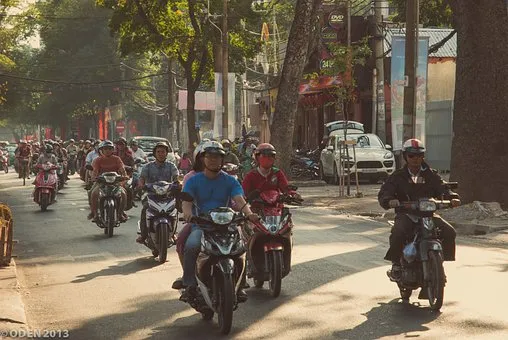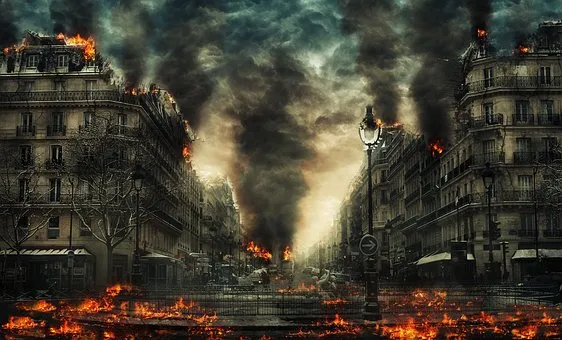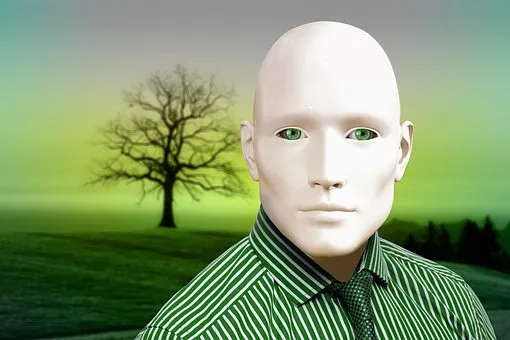In its weekly question @ecotrain wants to know whether we think it's a good or bad idea to bring children into this world in these troubled times? It seems like many of us have pondered this a lot, myself included. It's not an easy question, as there are so many sides to it. As for my wife and myself, we are both forty, and are perfectly fine without kids, even though we came to this decision without any underlying socio-political causes. However, in my theoretical reasoning I'd still take the side of bad idea - though at the same time I believe it's first and foremost up to each individual, so the last thing I'd expect is others to follow my reasons. All I want to do is present what makes sense to me:
Too Many of Us Doing the Wrong Things
I want to start out with one of the most contentious point of overpopulation. Within the next few years our numbers will pass the eight billion mark, and it's more likely the numbers are going to go further up, rather than coming down. What comes to mind when hearing this staggering number is not so much the mouths that want to be fed, but all the additional commodities: after all, we don't live on bread alone.

Many people like to point out that even though the greatest part of the world's people are crammed into south-east Asia, the populations that have the greatest effect on the world's resources live in North America and Europe (and sure, Japan and Australia). So who is really overpopulated? A family of rice-farmers in a Cambodian village with six children probably less so than an urban American professional single without any children. In this regard it would not hurt having 1-2 kids, especially if the individual pursues a life of increasing sustainability, which they will pass on to their offspring. The problem is, the tendency is exactly the opposite. If said rice-farmer moves into a town to take up a job in say the transport industry, all of a sudden the lifestyle of the whole family becomes less sustainable.
Moving Rapidly Away From Sustainability
Hanging out with like-minded people, or even just sharing blog-posts about fixing global problems, one can easily fall victim to thinking that most people aspire these same goals. Unfortunately, once we leave our circle of support, the opposite seems to be all too apparent: all around the world people are giving up traditionally sustainable practices in favor of short-term industrial comforts.
In the West this has been an integral part of the culture for a long time, but in the last century the same aspirations have been widely adopted by others around the world, whose economic background had inadvertently forced them to live in a way that has a lower impact on the natural world. Now that they see a reasonable chance of also partaking in some of the same benefits of industrialism, they embrace capitalism on its lower end, which leaves little room for lofty ideas of environmentalism and sustainability.

So the real problem I'm seeing in the next decades is not so much the number of people in the world, but the lifestyles they are seeking to lead. Though they can hardly be blamed for their ambition of a better life, as a result, even the broadest, most widely adopted shifts towards sustainability in the West will be minuscule in comparison. Unfortunately, the effects of this global shift in lifestyle will be felt by everyone.
Times Are Just Getting Harder
I'm certain, the same question @ecotrain is tackling this week has been raised by may people throughout the generations: When the world was consumed by a world war, just a couple of decades after the previous world war, this was a valid question. But it was probably equally valid in the hayday of the Inquisition, or back when Kurgan hordes destroyed the culture of the godess, bringing death, slavery and violence to a previously safe and thriving world.
The difference this time is that all the signs are indicating a rapid decrease in general quality of life worldwide. As we look back in time, this is only the continuation of the same degradation that has been going on for centuries. Children were born into an inhospitable world, always adjusting to the circumstances, and gradually accepting the increasing problems affecting us. Just like the frog, being boiled in gradually heated water without ever jumping out, we as humans have grown accustomed to increasing noise, pollution, stress, while having less and less space around us, time for meaningful interaction, nutrients in our food, etc.

These days, however, we are facing so many threats to our well-being, and of such magnitudes, that it is completely unreasonable to accept anyone to adjust to them, let alone bring about lasting changes. Climate change and the ongoing extinction of species are likely to lead to sudden disasters, which we won't be able to adopt to gradually, as we used to. Social unrest and political violence in the places where this is already happening can give us an idea what to expect on a global scale. It is challenging enough to grow perennial food forests and maximize biodiversity in times of peace and relative abundance, as it has been the case in previous decades.
Some Hope Remains
After so much doom and gloom, I want to try to close on a more positive note, even though everything I wrote is an honest reflection of how I've been feeling lately, and even after re-reading it a number of times I don't want to take back any of it. We may be witnessing the final chapter of our specie's conquest of its natural surroundings, its subjugation of most members of its own kind, having to finally pay for the debt it accumulated by postponing the inevitable consequences of "outsmarting nature".
Or maybe I'm wrong, and we are indeed on the brink of a massive shift in consciousness, scientific and technological breakthroughs, as well as a united goal to strive for. Maybe we'll manage to scrap mafia-like capitalist practices within a couple of years world-wide, and pour our collective efforts and resources into carbon removal from the atmosphere, restoring habitats for wildlife and humans, and get finally on the same page with everyone's thoughts, feelings, and attitudes, regardless of their culture, language, religion, or what have you. Don't assume the sarcastic tone my words might indicate. Though I may be quite skeptical, I'm not saying it couldn't happen.

On the other hand, we can find comfort in the upcoming destruction. After all, as a member of a culture we should be aware of its demise one day, just like we need to remember as living beings that one day we will die. Though just like how I suspect death isn't the end of everything, I believe part of our creation will outlast us, in some weird form. Maybe if our technology becomes self-aware it may keep the sum of our culture alive, including this post I'm typing, and it may find a way to co-exist in the new form of nature that will emerge after this current extinction. Who knows, but I don't think this is any less realistic than hoping for humans to become reasonable before they die out.
All images from Pixabay.
Please check out these great communities I'm contributing to:

#ecotrain | What is EcoTrain | Discord Community

#cyclefeed | Introducing CycleFeed | Discord Community


Introducing SteemitDreamit | Discord Community